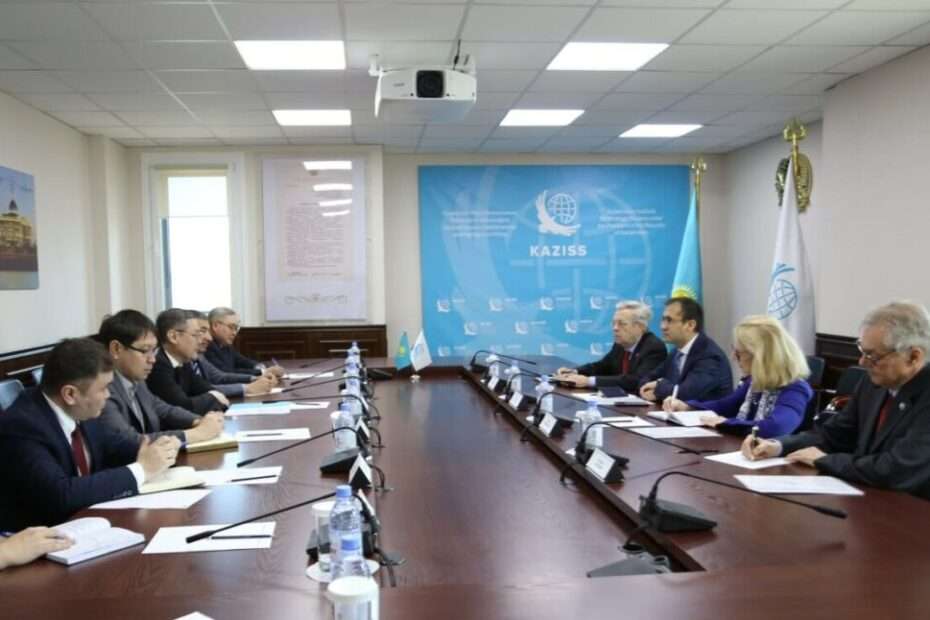Director of the Kazakhstan Institute for Strategic Studies under the President of the Republic of Kazakhstan Yerkin Tukumov held a meeting with the leadership of the Caspian Policy Center (hereinafter – CPC) in Astana today.
The participants of the meeting on behalf of the leading American think tank, an independent research center based in Washington, the District of Columbia, were its Chief Executive Officer (CEO) Efgan Nifti, Security and Politics Program Chair, ex-Ambassador Richard Hoagland, Board Member, Professor at Johns Hopkins University, Dr. Marsha McGraw Olive, Senior Fellow Richard Spooner.
Answering colleagues’ questions about the elections to the Majilis held on March 19 this year, Yerkin Tukumov said: «A lot has already been done inside the state, both in politics and in the economy. And these changes are not cosmetic in nature. For many years since gaining independence, we have sincerely believed in the priority of the economy over politics. However, we realized that it is impossible to change the economy without political reforms. Only by introducing political inclusivity it is possible to demonopolize and diversify our economy.» In turn, CPC Head Efgan Nifti noted: «Since 2021, great changes have taken place in Kazakhstan for the better side.»
Paying special attention to the issue of integration processes in the Central Asian region, the meeting participants noted the need to restart cooperation taking into account the experience of past years and the current international situation. In this regard, the head of the KazISS expressed confidence that «the only way to solve many issues is only cooperation. Without it, we will not be able to resolve either the water issue or disputes over borders.»
Discussing the results and prospects for the development of Kazakhstan, the parties were in consensus in a high assessment of the importance of the state educational program «Bolashak».
In addition, the experts discussed the prospects of cooperation between Kazakhstan and the United States, regional security in the field of politics, economy and energy, exchanged views on the actualization of the transit potential of our country, in particular, the possibilities of the Trans-Caspian Transport Corridor.


